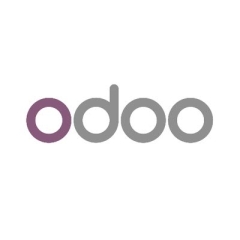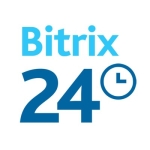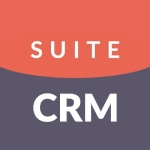What is our primary use case?
We are a partner of Odoo in Venezuela. We implement Odoo for our clients, and we also use it in our own company. We use Odoo to handle all the administrative processes in the business. We use the helpdesk module to take care of our customers' needs and support their needs. We can also control all the work that we have with them, what we are waiting for, what is open, and what we have to close on priority due to an emergency.
We use the project module for the implementation process. We prepare the steps of the implementation. We also use other modules. We use, for example, CRM for the relationship with our customers and the business that has been brought for the implementation of the tool. We also work with production or manufacturing companies to implement Odoo.
We are working on version 15, but we are coming from version 13.
What is most valuable?
I like the helpdesk module, and I like the simplicity of integration among their modules. All the modules are very well integrated, and you can move among the modules in an easy way. It's user-friendly. The information that I have is secure and stable across all the modules. It offers everything we need for the business in one system. Everything is integrated, and there is consistency.
What needs improvement?
It has been difficult to adapt to continuous changes, you have to understand what is new and what is changing in less than twelve months. You can take advantage of the new features, but you have to research them to be able to implement them. I will recommend keeping a version for two or three years, releasing minor changes, and then launching a new version with all the features. The release duration should be a little bit longer. The development teams should adapt quickly to these continuous changes.
For how long have I used the solution?
I've been using Odoo for three years.
Buyer's Guide
Odoo
April 2025
Learn what your peers think about Odoo. Get advice and tips from experienced pros sharing their opinions. Updated: April 2025.
849,190 professionals have used our research since 2012.
What do I think about the stability of the solution?
It's very stable. We didn't have any technical issues with it. We didn't have any technical issues in the cloud. We didn't have shutdowns or any issues with losing data. It's very stable. I'd rate it a nine out of ten in terms of stability.
What do I think about the scalability of the solution?
It's easy to scale. It scales very well. We can start with two or three modules and then integrate more modules in an easy way. It's highly scalable. I'd rate it an eight out of ten in terms of scalability.
In our company, we have 35 users because we use Odoo for our core system, and our customers have more than a thousand users.
How are customer service and support?
As a partner, we have a direct way to interact with Odoo, but we have customers who have used Odoo's customer service, and they received answers very fast. I'd rate their support a seven out of ten. It's good, but it can be improved.
How would you rate customer service and support?
Which solution did I use previously and why did I switch?
We came from SAP in Venezuela. We used to implement SAP, but SAP left the country due to issues in Venezuela. We started looking for an ERP to help us in our business, which is to implement ERPs.
How was the initial setup?
We are a partner of Odoo in Venezuela, and we implement Odoo for our clients. It's easy to implement. Once you understand the relationship between different modules, you can set it up in a short period of time. I'd rate it an eight out of ten in terms of the ease of the setup.
All of our customers currently are on the cloud. Its implementation duration varies. We do the presentation for two months, and then we have the implementation for nine months to twelve months. It depends on the number of modules and the complexity of the customer. We have some customers who don't know their processes very well, so we have to spend a lot of time with them at the beginning to discuss their processes and their data before we start to implement it. On average, in four or five months, you can set up and start taking advantage of the fully implemented system.
The number of people required for implementation varies, but generally, it doesn't require more than five people. Usually, there are one or two functional consultants and a project leader. There may be one or two developers for localization and other things.
What was our ROI?
We have seen an ROI. We have the opportunity to see how our customers receive a return on this investment. They have improved and standardized a lot of processes. They changed manual work to automated work.
What's my experience with pricing, setup cost, and licensing?
Its pricing is well-received in Latin America. They sell by the user. In October 2022, they changed the way they sell Odoo. They commercialized Odoo. They now sell by the user. The cost of a user is $13.5 five per month for Latin America, which is lower than other ERPs.
We have to split the cost of the solution into two parts. The first one is the license cost from Odoo, which is a subscription method, and then there is the project pricing, which is a one-time cost for setting up and implementing the system. The license is a subscription for which you pay annually.
Which other solutions did I evaluate?
We evaluated Dynamics and a few others. In the end, we decided based on the price, the business solution, and how easy it was to learn how to work with it.
What other advice do I have?
While implementing any ERP, not just Odoo, you have to know your processes very well. You need to know your processes before you start to implement any ERP. You need to know what you are going to set up. If you don't know what you need, you are going to have problems.
Overall, I'd rate Odoo an eight out of ten.
Which deployment model are you using for this solution?
Private Cloud
If public cloud, private cloud, or hybrid cloud, which cloud provider do you use?
Other
Disclosure: I am a real user, and this review is based on my own experience and opinions.




















